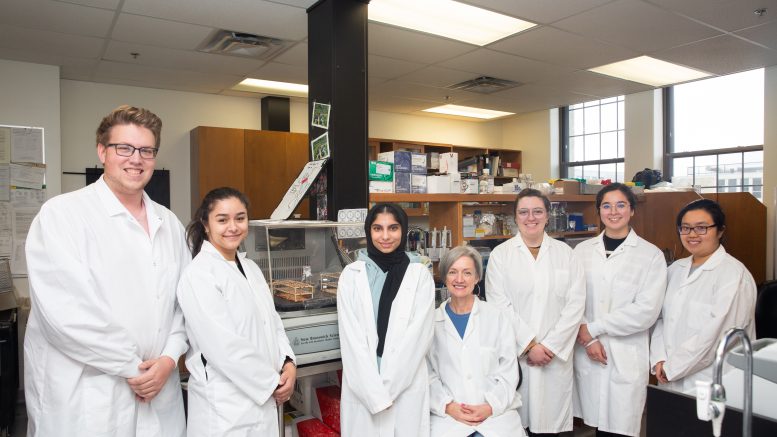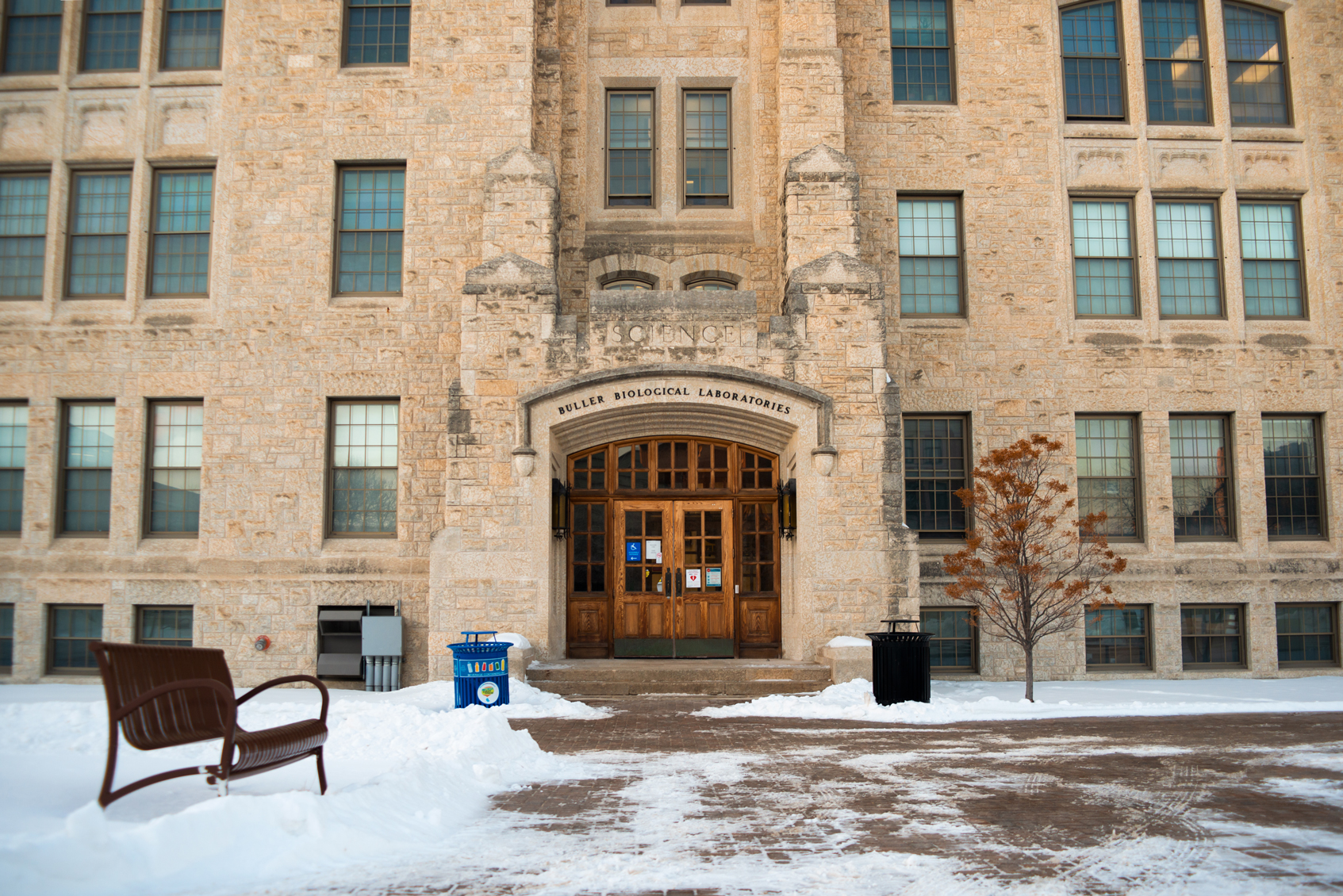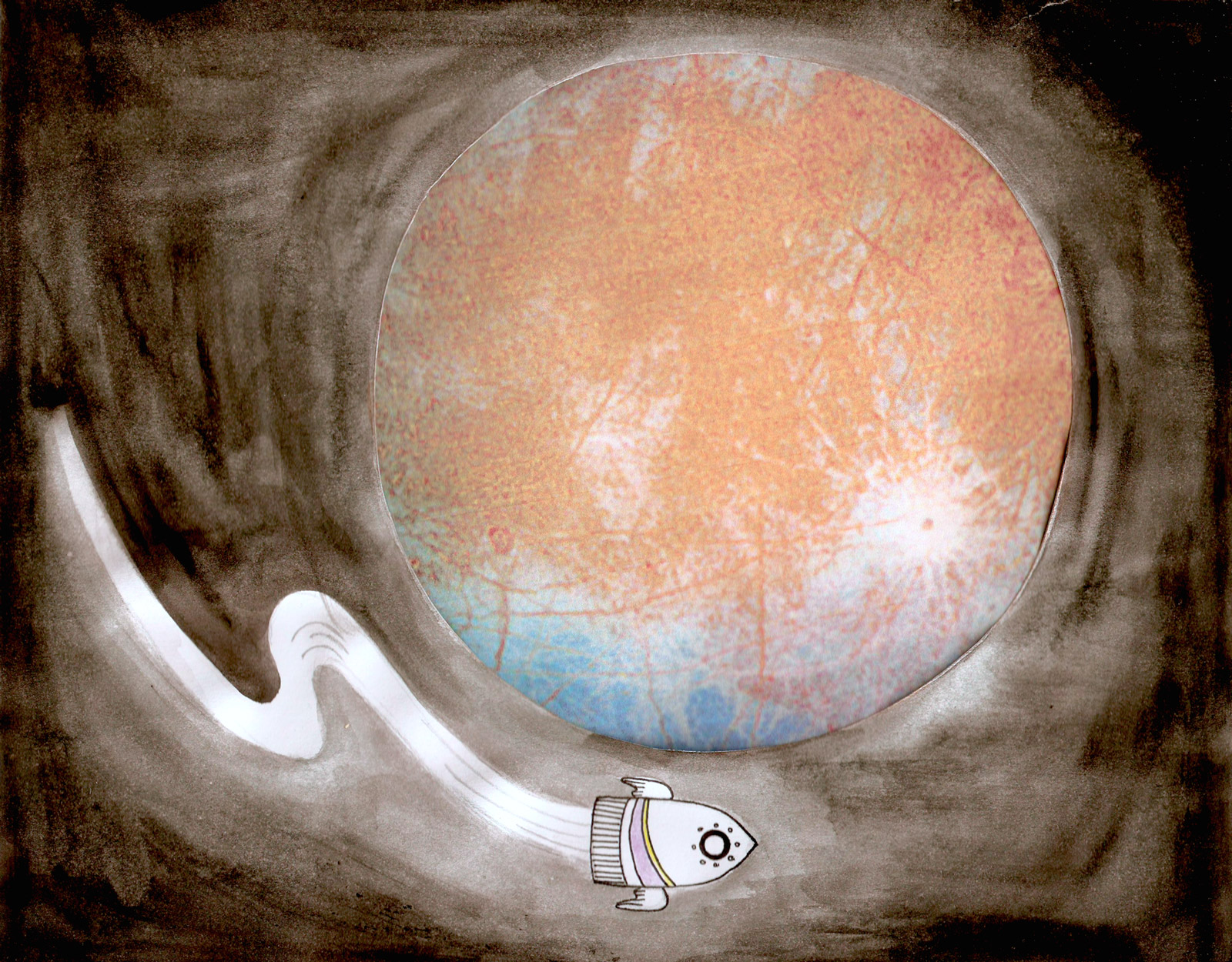How do bacteria thrive in diverse environments, including in the human body during infections and in industrial settings?
These types of simple yet profound questions are explored by members of the Cardona Lab to understand bacterial growth.
Led by U of M professor and associate head of graduate affairs in the department of microbiology Silvia Cardona, the Cardona Lab comprises approximately 10 members. This diverse team includes post-doctoral fellows, PhD students, master’s students and undergraduate researchers — each contributing to the lab’s dynamic environment and engaging in cutting-edge research from the undergraduate level onward.
“I’m happy to have people at different stages of training,” Cardona said.
The team’s research primarily focuses on deciphering the molecular mechanisms that govern bacterial growth, with an emphasis on essential functions crucial for bacterial survival.
The lab has different projects geared toward achieving this goal.
One of these projects involves using artificial intelligence (AI) to discover new antibiotics to combat infections, collaborating with researchers such as U of M associate professor in the department of chemistry Rebecca Davis, and Pingzhao Hu, U of M adjunct professor and Western University associate professor.
The team harnesses AI to predict the antibacterial properties of small molecules. Subsequently, these predictions are validated through laboratory experiments, allowing for the identification of potential antibiotics.
Once antibacterial activity is confirmed, the next phase involves investigating its mechanism of action. This process seeks to understand how the antibacterial compound kills bacteria or inhibits bacterial growth, a critical step in antibiotic development.
Cardona and the team employ AI to predict the mechanism of action. These predictions are then verified through experimentation, often involving extensive collections of bacterial mutants — bacterial strains which have undergone genetic mutations, leading to alterations in their genetic composition
The use of bacterial mutants is instrumental in pinpointing the precise mechanisms by which antibacterial compounds exert their effects. By observing how specific mutants react to these compounds, the team can decipher the intricate mechanisms responsible for inhibiting bacterial growth.
“By playing with these collections and seeing which mutants are more sensitive or more resistant to the drug under investigation, then we find the mechanism of action of the drug,” Cardona said.
Notably, the lab published a paper in Nature Communications in early August. The research focused on using large collections of bacterial mutants to uncover the mechanisms of action of antibiotics, specifically beta-lactam antibiotics — which are currently among the most important and commonly prescribed drugs.
By exposing the mutants to antibiotics, the team identified key functions that, when targeted, could enhance the antibiotics’ effectiveness — a crucial step in the fight against bacterial pathogens.
Beyond antibiotic research, the Cardona Lab also dedicates its efforts to biotechnology.
The lab explores functions that can be used to control bacteria in environmental settings, with a particular interest in bioplastic degradation. Collaborating with department of biosystems engineering professor David Levin, the team investigates ways to address the global challenge of plastic pollution.
Cardona’s journey into science was driven by an innate curiosity that blossomed during her teenage years.
“Molecular biology was a way that I could understand life,” she said.
Today, collaboration remains a cornerstone of the Cardona Lab’s success. Cardona emphasized the enthusiasm and shared passion for science that unites her team, as well as the supportive atmosphere within the department of microbiology and the broader scientific community.
“We all share the passion for advancing the research,” she said.
“It’s great to get all together toward a common goal.”
The World Health Organization highlights antibiotic resistance as one of the major issues currently affecting health and development around the world. This issue is made worse by the improper and excessive use of antibiotics.
Plastic pollution, another global threat, has huge effects on biodiversity and the environment.
With the rise of antibiotic-resistant bacteria and environmental challenges like plastic pollution, Cardona believes it is important to conduct research that contributes to the development of real-world solutions.
“I like to focus my research on things that are meaningful for people,” Cardona said.





